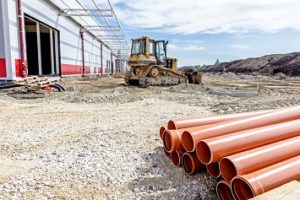So, you’ve cleaned up a contaminated property. What do you do with the polluted material? In one state, it might be wise to temporarily store some of it, at least for purposes of litigation.
A company in New Jersey was taken to task in court for disposing of certain materials from their remediated property.
The Appellate Division of the Superior Court of New Jersey recently held that a company, while remediating a site, committed “spoliation” when it disposed of contaminated materials that were relevant pieces of evidence to the litigation (18-01 Pollit Drive, LLC v. Engel et al.).
In the legal world, spoliation is the intentional destruction, hiding, or losing of potential relevant evidence that impairs another’s ability to prosecute or defend a legal action. The plaintiff in the case, 18-01 Pollitt Drive, LLC, wanted to recover costs incurred in investigating and remediating contamination discovered after it purchased a commercial property, but by destroying valuable evidence during remediation, it damaged its case.
A Little Background
The property in question is located in an industrial park and adjacent to a well field that had been designated a Superfund site by the U.S. Environmental Protection Agency (EPA) after the Agency had found tetrachloroethylene (PCE) and trichloroethylene (TCE) in municipal wells. The property, at various points, had been leased to commercial printers.
Before buying the property, the plaintiff had an environmental site assessment (ESA) done. The ESA showed that the property had a history of potentially hazardous uses. The plaintiff claimed that at the time of purchase, it did not know that the property was near a Superfund site.
After discovering the contamination, the plaintiff hired a company to investigate and remediate the contamination and assumed responsibility for remediation. Meanwhile, several businesses that had assumed responsibility for the Superfund site demanded contribution from the plaintiff for cleanup costs when they discovered that PCE discharges from the plaintiff’s property had migrated to the well field.
The plaintiff issued demands to prior owners and operators of the property for contributions for remediation costs.
Spoliated Evidence
At issue in this case was the destruction of three pieces of evidence the plaintiff offered to establish the timing and source of the discharges.
One was a corroded segment of original lateral pipe that was located within the foundation walls. The plaintiff took photographs and then discarded the pipe 2 years before filing the complaint.
The second and third items were an acid dilution sump pit and a concrete slab floor, both of which had been excavated and destroyed before experts could examine them. The experts relied on photographs of the structures and data derived from sludge within the sump structures and from soil beneath the sump.
The defendants claimed that it was not possible to verify or refute the plaintiff’s discharge theories without examining the actual structures and flooring.
Court Findings
The court held that without the actual evidence, the plaintiff was unable to establish the source and time of the leak. In addition, there was no other proof offered to link the prior owners and operators to the contamination.
The plaintiff had argued that it was not required to save the pipe because it had no plan to bring suit when it disposed of the pipe. No merit here, said the court, because the obligation to preserve evidence arises when litigation is “probable.” In essence, if you purchase property that you know has a history of potentially hazardous uses, you should anticipate that you may be involved in some sort of litigation down the line.
The plaintiff also tried to claim that the loss of the dilution pumps and concrete flooring didn’t matter because the unavailability of the items constrains both parties in the case.
The court held decisively that the plaintiff had an obligation to preserve the pipe, dilution sumps, and concrete floor materials and that the destruction of these items constituted a spoliation of relevant evidence.
However, while it may be wise to preserve relevant evidence during your remediation and cleanup process if you anticipate litigation related to your Superfund site, make sure you do so in keeping with all relevant state and federal laws.

